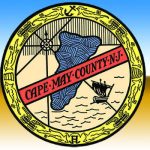TRENTON — Conserve Wildlife Foundation of New Jersey (CWF) released the 2015 Piping Plover Breeding Report, highlighting the number of nesting pairs, pair productivity, and coast-wide distribution for this endangered shorebird, from data collected by New Jersey Division of Fish and Wildlife (NJDFW) biologists, CWF biologists, and other partners.
“The rebound in New Jersey’s piping plover breeding population and a second consecutive year of robust chick productivity was a much needed outcome,” said Conserve Wildlife Foundation Beach Nesting Bird Project Manager Todd Pover. “We need to continue our intensive management for a number of years to sustain any recovery, but we were very pleased to have finally broken the recent cycle of low nesting success and the record low number of nesting pairs in 2014.”
The piping plover – a small sand-colored shorebird that nests in New Jersey as part of its Atlantic Coast range from North Carolina up to Eastern Canada – face a number of threats, including intensive human recreational activity on beaches where they nest, high density of predators, and a shortage of highly suitable habitat due to development and extreme habitat alteration.
Federally listed as a threatened species in 1986, piping plovers have since recovered in some areas of the breeding range. Yet piping plovers continue to struggle in New Jersey, where they are listed by the state as endangered.
“As a species dependent on natural beach habitat, piping plovers face a particularly daunting challenge along New Jersey’s heavily developed and dynamic coast,” said Conserve Wildlife Foundation Executive Director David Wheeler. “Our dedicated scientists, partners, and volunteers are working tirelessly to ensure piping plovers remain a beloved and healthy presence along the Jersey Shore and beyond.”
CWF, in close coordination with NJDFW’s Endangered and Nongame Species Program, oversees piping plover conservation throughout New Jersey.
Staff and volunteers help erect fence and signage to protect nesting sites, monitor breeding pairs frequently throughout the entire nesting season from March to August, and work with public and municipalities to educate them on ways to minimize impacts. Although conservation efforts on the breeding ground remain the primary focus, in recent years, CWF has also begun to work with partners all along the flyway, in particular on the winter grounds in the Bahamas, to better protect the at-risk species during its entire life-cycle.
Highlights of the 2015 Piping Plover Breeding Report are found below. To view the complete report online, visit www.ConserveWildlifeNJ.org.
Conserve Wildlife Foundation of New Jersey (CWF) is a private, non-profit organization dedicated to the protection and preservation of New Jersey’s endangered and threatened wildlife and the habitats they depend on. We carry out our mission by researching and managing rare animal species, restoring habitat, educating New Jersey’s residents, and engaging volunteers in our conservation projects. Since the early 1990’s, CWF scientists and educators have helped conserve and protect a variety of at-risk species of wildlife in New Jersey, the most densely populated state in the nation.
For more information on CWF, please visit us at www.ConserveWildlifeNJ.org.


 North Cape May Man Held on Child Porn Charge
North Cape May Man Held on Child Porn Charge
 Former VFW Post Razed to Make Room for Condos
Former VFW Post Razed to Make Room for Condos
 Ethics Lawyer Says Commissioner’s in Conflict Over Airport
Ethics Lawyer Says Commissioner’s in Conflict Over Airport






